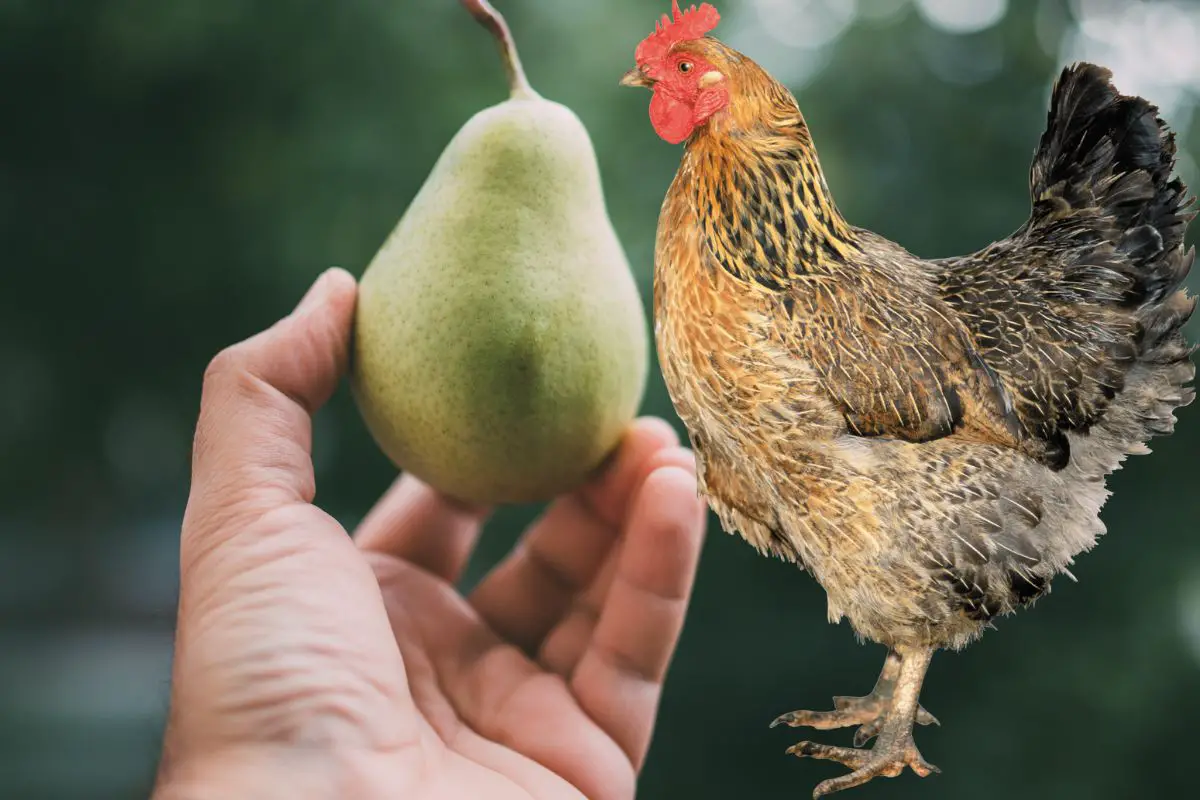Chickens can eat raw and cooked pears, but just like any fruit - chickens should only be fed pears in moderation. Pear seeds do contain trace amounts of cyanide.
Fresh fruits and veggies are perfect as a healthy treat for your backyard chickens, but not every fruit is safe to eat. It is vital to understand both the health benefits and risks of any new food being added to your chickens’ diet.
Pears are a delicious and highly nutritious fruit, but is it okay to feed chickens pears?
This article covers which parts of the pear are safe for chickens to consume and how pears should be prepared for chickens.
Are Pears Safe for Chickens to Eat?
Pears are generally safe for chickens to eat and chickens can consume pear peels, pear fruit, and pear seeds without issues. Ripe Pears will contain more sugar than unripe pears, but will also offer more nutrients.
As is the case with all supplemental foods, moderation is required. Never feed pears and other fresh foods in excess of 10% of your chicken’s diet as 90% of their diet must be chicken feed for optimal health.
Some people say you should limit pear seeds because they contain trace amounts of cyanide. The truth is a chicken would have to consume an incredible amount of these seeds to suffer any ill effects. As long as you provide pears in moderation, they are safe.
However, seemingly healthy foods like citrus fruits, apple seeds, rhubarb, and green potatoes are actually not safe because they contain compounds that are toxic to chickens including solanine and persin.
Always wash pears before serving to your chickens to remove any pesticides that might still be present. Rotting or moldy pears are never safe to offer your chickens because mold is toxic, so you must remove any uneaten pears in your coop.
Are Pears Healthy for Chickens?
A medium sized pear is packed with nutrients, and has only 100 calories. Pears are considered a healthy food for chickens when provided in moderation.
Pears contain the following nutrients:
- Calcium
- Antioxidants
- Potassium
- Vitamin C
- Vitamin A
- Magnesium
- Dietary Fiber
- Phosphorus
If you provide pears as an occasional treat, your chickens will reap the benefits of these nutrients. Pears are a perfect treat as part of a well-balanced diet, with their calcium being important for egg production in hens.
The antioxidants in pears aid your chicken’s health by helping fight free-radicals. The dietary fiber that pears provide will keep your laying hens and their digestive systems in tip-top shape.
Pears should not be fed in large amounts however as ripe pears contain a high amount of carbohydrates from sugar.
Offer pears as an occasional chicken treat alongside chicken feed and whatever your birds can find when free-range foraging for the best balance of nutrients.
Do Chickens Like Cooked or Raw Pears Better?
Chickens don’t seem to have a preference and like both cooked and raw pears.
If you cook pears, you must not poach them in white wine or sugar, as pears have enough natural sugar as they are. Pears can be boiled, sauteed or roasted, but must not have added fat or seasonings, which are not good for chickens and can lead to dehydration and obesity.
As long as you provide them in moderation, either cooked or raw pears are safe and make an excellent treat for backyard chickens.

